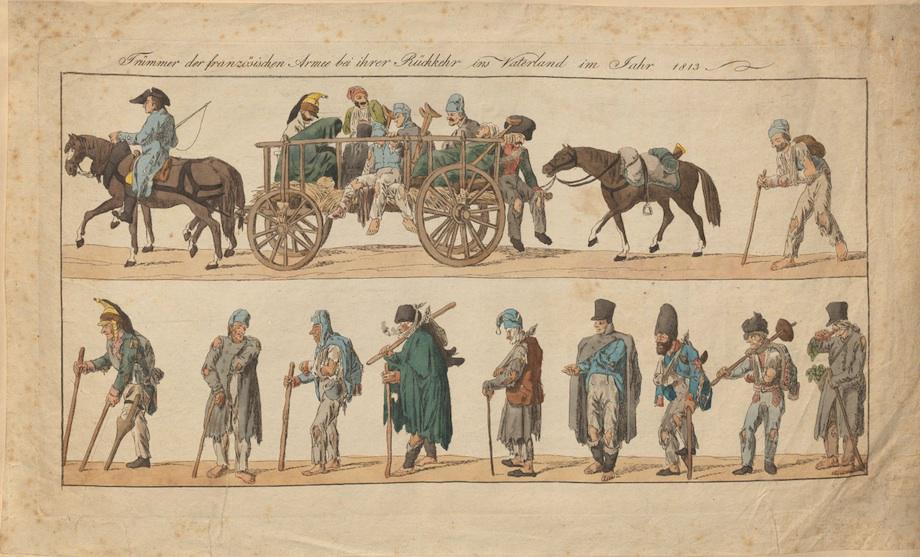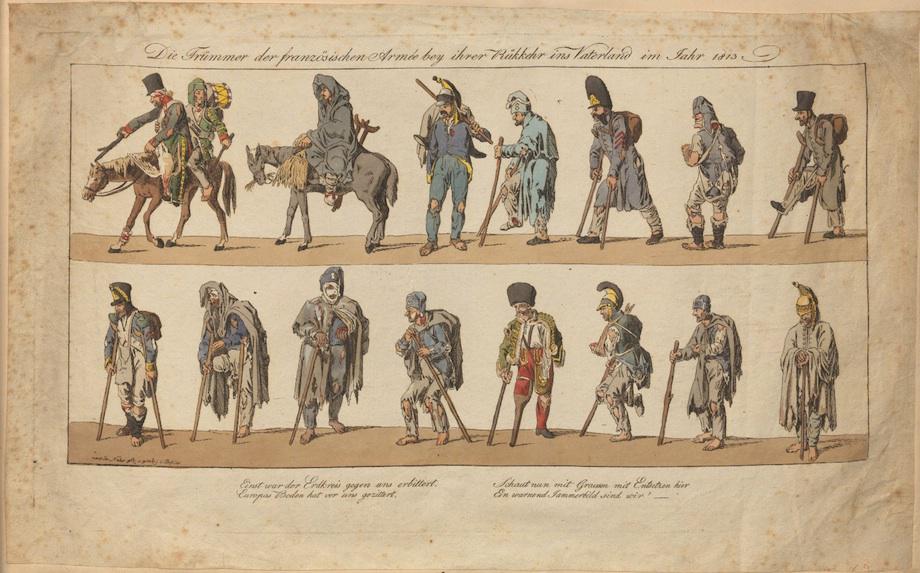The Vault is Slate’s new history blog. Like us on Facebook; follow us on Twitter @slatevault; find us on Tumblr. Find out more about what this space is all about here.
While Napoleon Bonaparte waged war across the continent in the early 19th century, European satirists living in countries threatened by his encroachments represented his progress in a flood of caricatures.
These prints, published in French-occupied Germany in 1813, depict a parade of ragged French soldiers. Some are mounted on sorry-looking horses, some are missing limbs, and most lack shoes and lean heavily on canes. Any semblance of military uniformity has dropped away, as the men appear swathed in rags and tatters.
After Napoleon’s ill-fated attempt to wage war on Russia in the summer of 1812, his army of half a million men suffered greatly—first from the heat, as the Russians withdrew inland and dragged the invading army along, and later from the winter snow and cold, as they retreated, pursued by the Russian forces. As Joe Knight wrote for Slate last year, the army was also plagued by lice, and large numbers of men died of typhus carried by the insects.
In the introductory essay for a Brown University online exhibit of anti-Napoleonic art, H. Saska notes that the sad fate of French soldiers was a common theme in these satires. An army of broken men, like the one depicted in these prints, was living testimony to Napoleon’s selfish hunger for imperial expansion.
After Napoleon’s withdrawal from Russia brought Russian armies near Germany’s borders, the loose group of German states that had undergone increased centralization during the years of occupation rose up against the French and expelled them. (This experience was one of the first steps toward German national unification.)
Cornell University, which holds these prints, has many more German caricatures of Napoleon, including one depicting Bonaparte as a baby being cradled by a red-eyed devil.

“Trümmer der französichen Armee bei ihrer Rückkher ins Vaterland im Jahre 1813 [Retreat across Germany of the French Army in Shambles after the Disastrous War in Russia].” Cornell University Rare and Manuscript Collections Images.

“Trümmer der französichen Armee bei ihrer Rückkher ins Vaterland im Jahre 1813 [Retreat across Germany of the French Army in Shambles after the Disastrous War in Russia].” Cornell University Rare and Manuscript Collections Images.